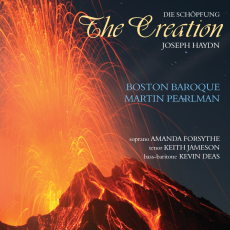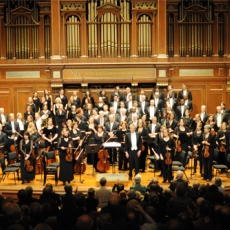Boston Baroque - Haydn Creation - Criticaclassica.com
Written between 1796 and 1798, "Die Schöpfung" ("The Creation"), sacred oratorio for soprano, tenor, bass, chorus and orchestra by Franz Joseph Haydn had a rather long gestation.
The booklet, author of still unidentified, had already been submitted to the composer in 1795, by Johann Peter Salomon, known impresario tedseco transplanted in the UK.
Initially the text, which had as its main reference Milton's poem "Paradise Lost", to which were added steps of Genesis and the Book of Psalms, not particularly struck Haydn. The musician changed later idea, especially for the urgent insistence of Baron van Swieten and patron Vienna, author of the German translation.
At the end of the great composer gave birth to a true masterpiece, which is divided into three parts, the first two closely linked to the six days of creation, and the last starring Adam (bass) and Eve (soprano) at the threshold of shame original, filtered through the story of the archangels Gabriel (soprano), Uriel (tenor) and Raphael (bass).
The "first" took place in 1798, in private, to Schwarzenberg Palace, in front of an audience made up of the local nobility, and the public debut, which took place the following year at the Burgtheater in Vienna, was crowned with great success.
Among the secrets of fast and next statement there was definitely the fact that Haydn proposed a work in which the sacred atmosphere, while substantially complied with, the spectacular anteponeva rigor, using some solutions of great musical effect, entrusted to an orchestra for imposing the time. The oratory was recently recorded by the British home Linn, enclosed in a double hybrid Super Audio CD, where execution is entrusted to the Boston Baroque Ensemble, directed by Martin Pearlman, and Amanda Forsythe solo voices (soprano), Keith Jameson (tenor) and Kevin Deas (bass-baritone).
This is a recording of the highest level, both for the fine performance of the U.S. team, which brings out the shine and vibrancy of the oratory, not to mention the moments of greatest concentration, and thanks to the three sung, showing great items intensity.
In conclusion, we believe that this incision can become an important benchmark in the category of record versions of "The Creation" by Haydn.

